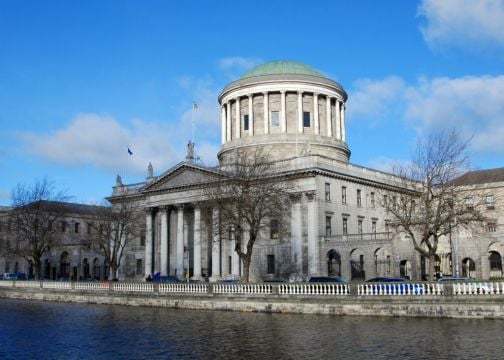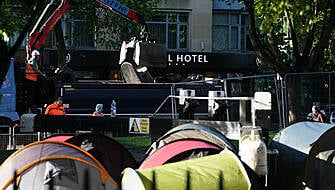Motions brought by boom-time developer Seán Dunne in an effort to dislodge officials overseeing his bankruptcy have been dismissed by the High Court.
Mr Justice Liam Kennedy said Mr Dunne (70) failed to bring new proceedings and instead took a procedurally incorrect route in seeking to challenge the validity of two officials’ appointments within the original bankruptcy case.
Mr Dunne was declared bankrupt in 2013, owing hundreds of millions of euro to the banks.
He recently issued motions alleging, among other claims, that the legislation used to appoint official assignees to his bankruptcy is unconstitutional.
A preliminary objection was raised by former official assignee Chris Lehane, his successor Ian Larkin, and the head of the Insolvency Service of Ireland, Michael McNaughten.
Ruling on the objection on Tuesday, Mr Justice Kennedy said Mr Dunne’s six motions “must be dismissed” as he took a procedurally flawed route.
The judge said it was “not appropriate” to invoke his “inherent jurisdiction” to help Mr Dunne overcome the procedural difficulties.
Continuing with the motions in their present form would cause prejudice to the other side, he said.
Mr Justice Kennedy also did not agree with Mr Dunne’s contention that the court should not accept submissions made on behalf of the official assignees until they “prove” their appointment in the way Mr Dunne says is proper.
Represented by Lyndon MacCann SC and Úna Nesdale, the bankruptcy officials argued Mr Dunne should have brought his challenge by way of a plenary summons.
The developer had represented himself in court and submitted that striking out his application would be “beyond bizarre”. He claimed the officials had failed to produce sufficient documentation proving their appointments and that it was in “everyone’s interests” to allow his motions to proceed.
Mr Dunne is not due to exit bankruptcy until 2028, as the High Court extended his term due to his non-co-operation with bankruptcy officials and his non-disclosure of information about assets.







